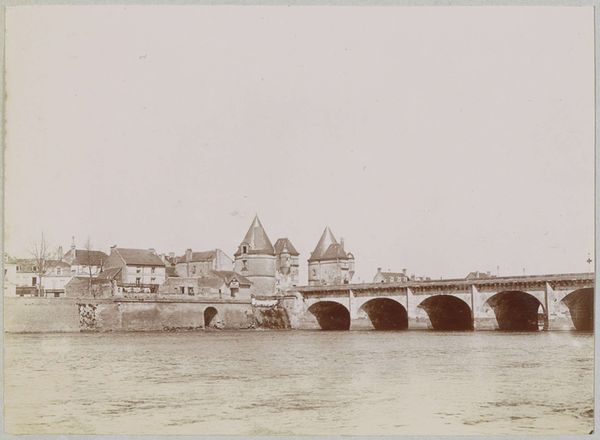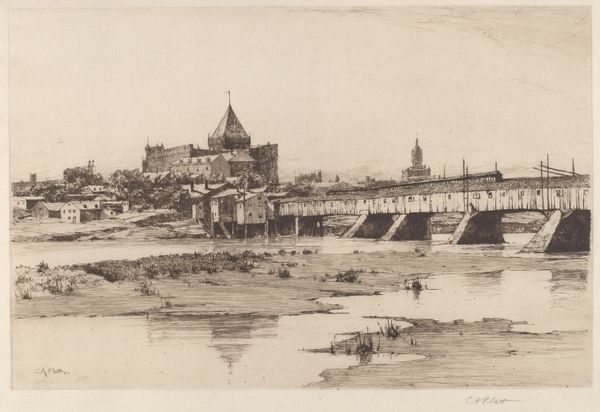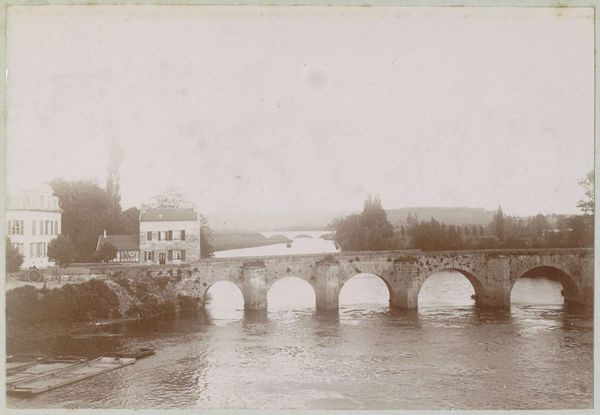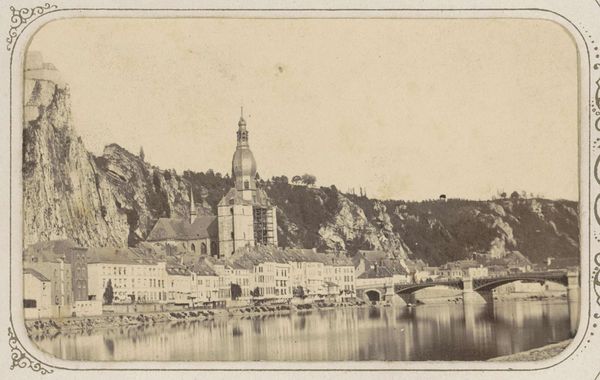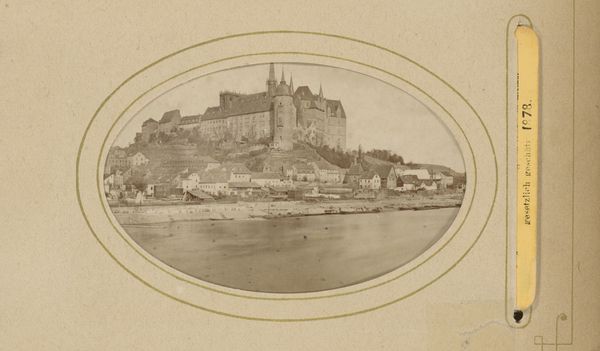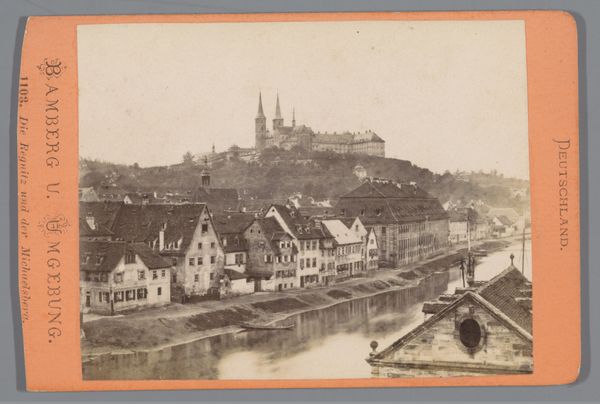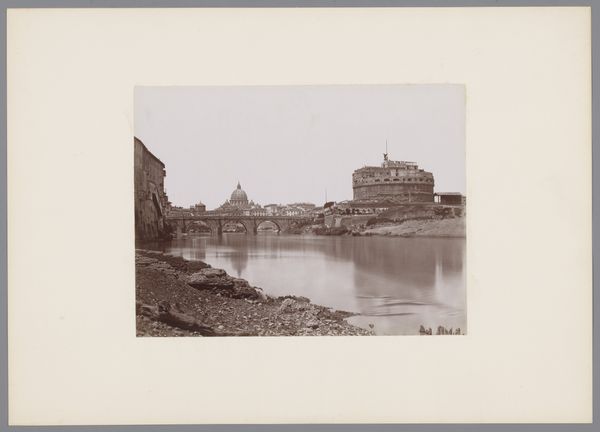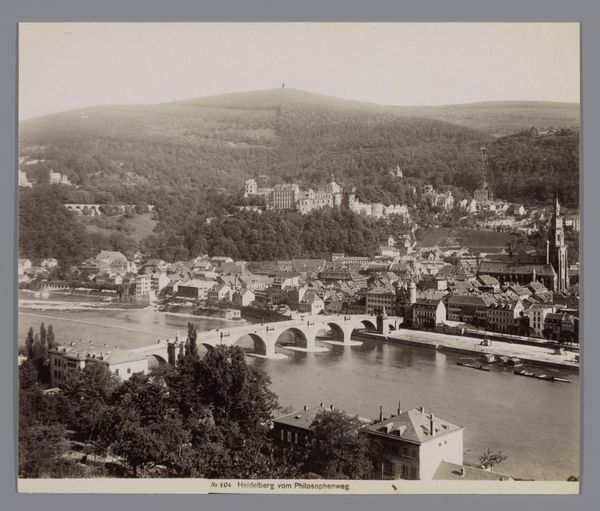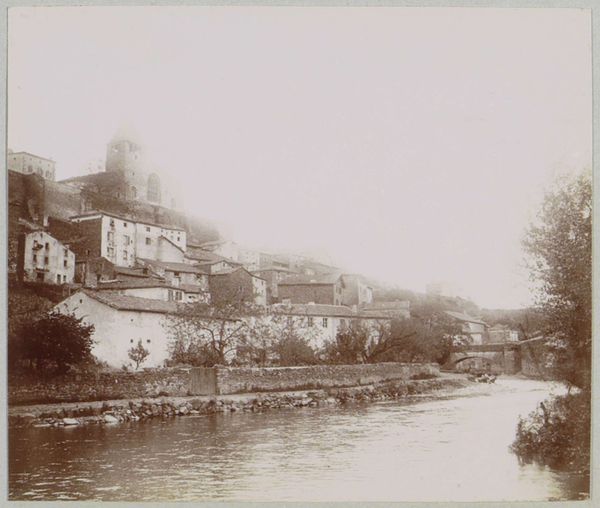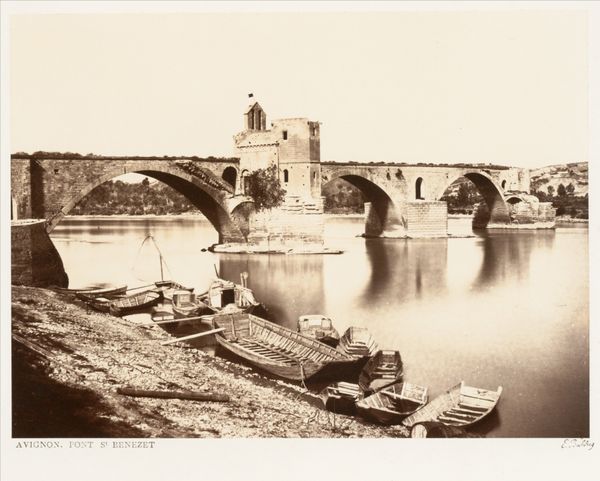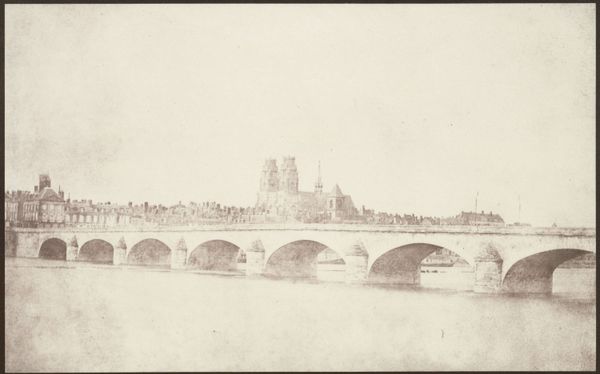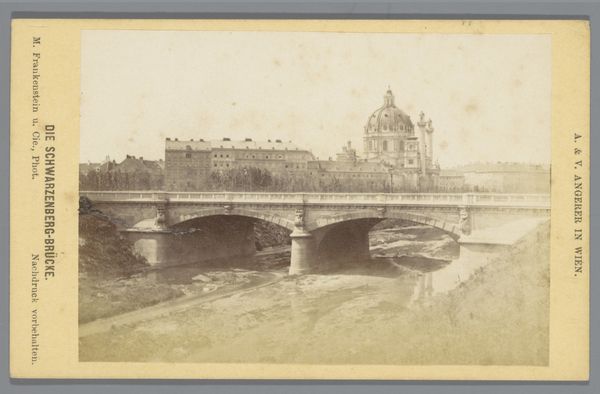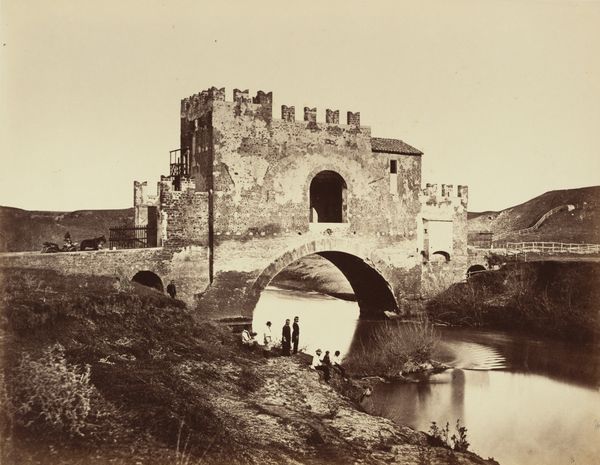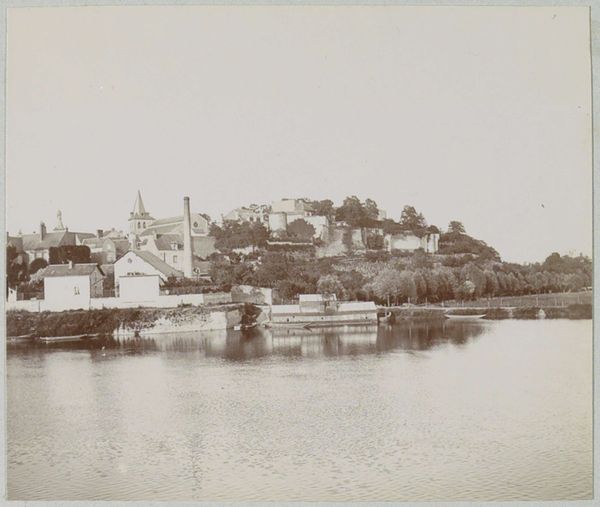
print, daguerreotype, photography
# print
#
landscape
#
daguerreotype
#
river
#
photography
#
19th century
#
cityscape
#
building
Dimensions: Sheet: 12 in. × 18 9/16 in. (30.5 × 47.2 cm) Image: 9 3/4 × 13 3/4 in. (24.7 × 35 cm)
Copyright: Public Domain
Editor: Here we have Joseph Vigier's "Vue du château de Pau," created in 1853. It's a daguerreotype, a very early type of photograph. The overall tone is sepia, giving it a somewhat dreamy quality. What's your interpretation of this particular cityscape? Curator: It whispers of history, doesn't it? Imagine standing there, the air still, the river reflecting the castle like a memory. Early photography, especially the daguerreotype, felt almost like capturing ghosts, preserving a moment with a reverence you don't quite get with a cell phone snapshot. Do you feel that sense of stillness when you look at it? Editor: Absolutely. It feels very different from, say, a modern photograph of the same location. More...contemplative. Curator: Precisely! And it makes you wonder about the photographer’s choice to focus on this view. What narrative is he constructing? The imposing castle overlooking the humble town, reflected in the water - power, history, and perhaps a hint of impermanence all rolled into one shimmering image. Does the composition itself tell you anything? Editor: I hadn’t thought about it that way. I was just focusing on the beautiful reflections on the river. Now that you mention it, the positioning of the castle does give it a dominating presence. Curator: Art invites these layered readings. And maybe tomorrow, looking at it, you’ll see something entirely different. That’s its delicious magic! Editor: I never really considered the perspective that a daguerreotype can offer such different narrative possibilities. Curator: Exactly. And hopefully, each viewing lets you consider them a bit more deeply.
Comments
No comments
Be the first to comment and join the conversation on the ultimate creative platform.
